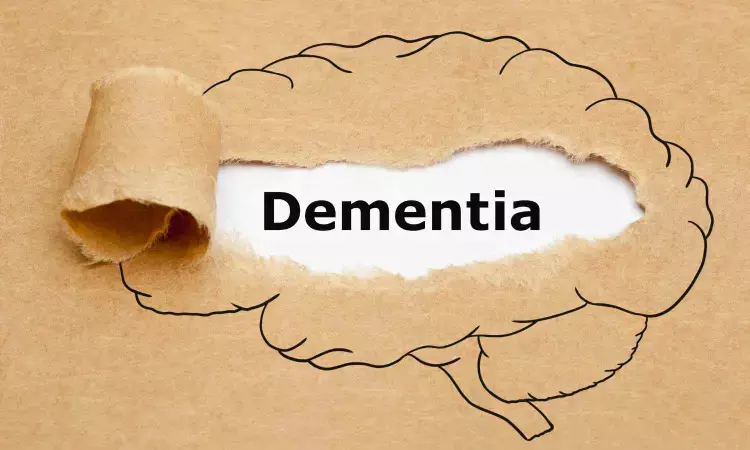- Home
- Medical news & Guidelines
- Anesthesiology
- Cardiology and CTVS
- Critical Care
- Dentistry
- Dermatology
- Diabetes and Endocrinology
- ENT
- Gastroenterology
- Medicine
- Nephrology
- Neurology
- Obstretics-Gynaecology
- Oncology
- Ophthalmology
- Orthopaedics
- Pediatrics-Neonatology
- Psychiatry
- Pulmonology
- Radiology
- Surgery
- Urology
- Laboratory Medicine
- Diet
- Nursing
- Paramedical
- Physiotherapy
- Health news
- Fact Check
- Bone Health Fact Check
- Brain Health Fact Check
- Cancer Related Fact Check
- Child Care Fact Check
- Dental and oral health fact check
- Diabetes and metabolic health fact check
- Diet and Nutrition Fact Check
- Eye and ENT Care Fact Check
- Fitness fact check
- Gut health fact check
- Heart health fact check
- Kidney health fact check
- Medical education fact check
- Men's health fact check
- Respiratory fact check
- Skin and hair care fact check
- Vaccine and Immunization fact check
- Women's health fact check
- AYUSH
- State News
- Andaman and Nicobar Islands
- Andhra Pradesh
- Arunachal Pradesh
- Assam
- Bihar
- Chandigarh
- Chattisgarh
- Dadra and Nagar Haveli
- Daman and Diu
- Delhi
- Goa
- Gujarat
- Haryana
- Himachal Pradesh
- Jammu & Kashmir
- Jharkhand
- Karnataka
- Kerala
- Ladakh
- Lakshadweep
- Madhya Pradesh
- Maharashtra
- Manipur
- Meghalaya
- Mizoram
- Nagaland
- Odisha
- Puducherry
- Punjab
- Rajasthan
- Sikkim
- Tamil Nadu
- Telangana
- Tripura
- Uttar Pradesh
- Uttrakhand
- West Bengal
- Medical Education
- Industry
Low Antioxidant Nutrient Intake may Increase Dementia Risk in Older Adults, Shanghai Study Finds

China: A recent study from the Shanghai Aging Study has revealed a significant association between a low intake of total antioxidant nutrients (AN) and a heightened risk of developing dementia in older adults. This research underscores the potential role of antioxidants in safeguarding cognitive health and suggests that dietary adjustments could be a proactive measure against age-related cognitive decline.
The findings were published online in Neuroepidemiology on September 05, 2024.
Antioxidants, including vitamins C and E, selenium, and beta-carotene, are known for their protective effects against oxidative stress, which is believed to play a role in the aging process and cognitive deterioration. Previous longitudinal studies have examined the effects of antioxidant nutrients on cognitive impairment in older adults, but the findings have been inconsistent. Therefore, Liu S, Shenyang University of Technology, Shenyang, China, and colleagues sought to test the hypothesis that dietary intake of total AN is linked to the onset of dementia in older adults.
For this purpose, the researchers in the Shanghai Aging Study prospectively followed community residents aged 60 years and older who were free from dementia for an average of 5.2 years. At the study’s outset, they assessed participants' daily intakes of total dietary antioxidant nutrients (including carotene, vitamin C, vitamin E, lutein, and flavonoids) and overall energy intake using a food frequency questionnaire administered by an interviewer. This questionnaire measured dietary intake over the previous year. Participants' cognitive function was evaluated through a series of neuropsychological tests, and dementia diagnoses were established based on DSM-IV criteria both at baseline and during follow-up.
The study led to the following findings:
- Among the 1,550 participants who were free of dementia at the start, 135 individuals (8.7%) were diagnosed with incident dementia over the average follow-up period of 5.2 years.
- Participants with low AN intake (<112mg/d) had a significantly higher risk of incident dementia than those with high AN intake (≥ 112 mg/d) (hazard ratio [HR] 1.87) after adjusting for age, gender, education, obesity, APOE-ε4, hypertension, diabetes, depression, baseline Mini-Mental State Examination score, and total energy intake.
- The notable association of total AN intake with incident dementia was only found in individuals ≥70 years.
The findings showed that a low intake of total antioxidant nutrients could be a risk factor for developing dementia in older adults. Ensuring adequate AN intake might help protect against cognitive decline associated with aging.
"As the global population ages, understanding and addressing risk factors for dementia becomes increasingly important. The findings from the Shanghai Aging Study offer valuable insights into how dietary interventions could be integrated into public health strategies aimed at reducing the burden of dementia and improving quality of life for older adults," the researchers concluded.
Reference:
Su Liu, Jianfeng Luo, Zhenxu Xiao, Wanqing Wu, Xiaoniu Liang, Qianhua Zhao, Xianfeng Zhao, Yi Wang, Wenhuan Fu, Ding Ding; Low Intake of Total Antioxidant Nutrients as a Risk Factor for Incident Dementia in Older Adults: the Shanghai Aging Study. Neuroepidemiology 2024; https://doi.org/10.1159/000541231
Dr Kamal Kant Kohli-MBBS, DTCD- a chest specialist with more than 30 years of practice and a flair for writing clinical articles, Dr Kamal Kant Kohli joined Medical Dialogues as a Chief Editor of Medical News. Besides writing articles, as an editor, he proofreads and verifies all the medical content published on Medical Dialogues including those coming from journals, studies,medical conferences,guidelines etc. Email: drkohli@medicaldialogues.in. Contact no. 011-43720751


